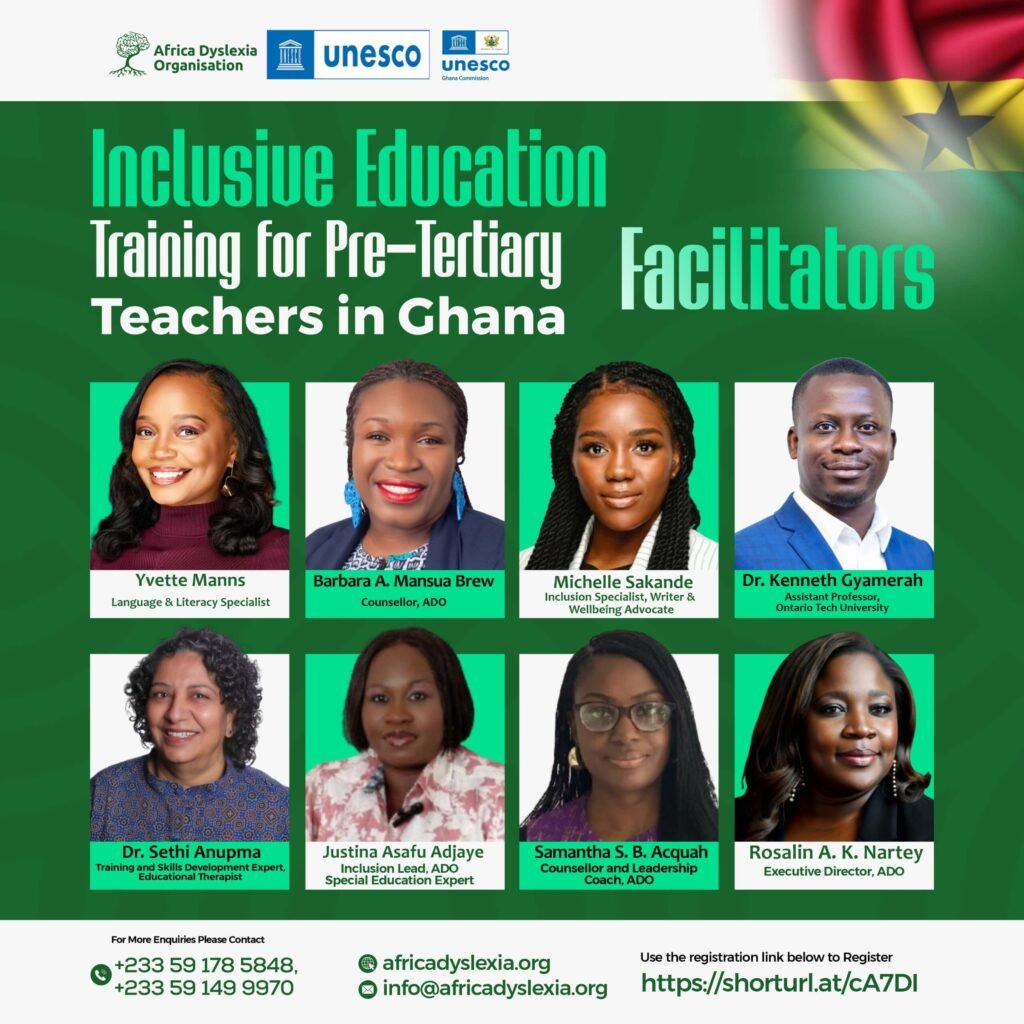
Africa Dyslexia Organisation, in Collaboration with UNESCO and UNESCO Ghana Commission, Presents: Online Inclusive Education Professional Development Training.
Empowering pre-tertiary teachers in Ghana with the latest skills and strategies to enhance teaching and promote inclusive education.
Training Modules Overview
This module virtual program is meticulously designed to equip educators with the tools needed to create inclusive and supportive learning environments:
 Introduction to Special and Inclusive Education
Introduction to Special and Inclusive Education- Grasp the core principles of inclusive education and its role in ensuring equitable learning opportunities.
 Understanding Dyslexia and Other Learning Disabilities
Understanding Dyslexia and Other Learning Disabilities- Delve into the traits of dyslexia and related learning challenges, their effects on students, and effective support mechanisms.
 Screening and Identification of Learning Needs
Screening and Identification of Learning Needs- Master techniques and tools for accurately identifying and screening the diverse learning requirements of your students.
 Multi-Modal Teaching Techniques for Inclusive Classrooms
Multi-Modal Teaching Techniques for Inclusive Classrooms- Implement innovative, multi-sensory teaching methods that engage every learner and foster an inclusive atmosphere.
 Classroom Management and Support for Inclusive Classrooms
Classroom Management and Support for Inclusive Classrooms- Acquire practical strategies for managing diverse classrooms and addressing the unique needs of all learners.
 Evaluating Progress and Continuous Professional Development
Evaluating Progress and Continuous Professional Development- Learn to monitor student advancement while committing to your ongoing personal and professional growth as an educator.
 Mental Health and Wellbeing for Educators
Mental Health and Wellbeing for Educators- Explore strategies to maintain your mental health and wellbeing, ensuring resilience and balance in your teaching career.
 Reflections and Q&A Session
Reflections and Q&A Session- Participate in interactive discussions to reflect on key insights, share experiences, and engage with experts and fellow educators.
Training Details
- Format: Entirely online – join from anywhere in Ghana
- Duration: 20 hours total
- Schedule: Biweekly 2-hour
sessions on Tuesday evenings - Timeline: February to April 2025
- Schedule: Biweekly 2-hour
 Contact Us for More Information
Contact Us for More Information- Phone: +233 59 178 5848 | +233 59 149 9970
- Email: info@africadyslexia.org
- Website: www.africadyslexia.
org
